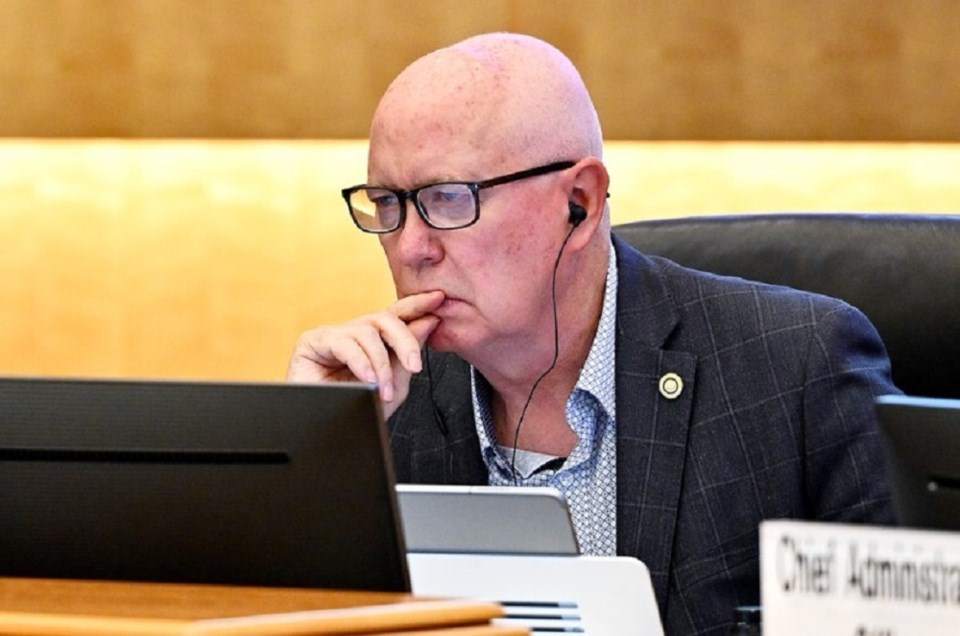Burnaby Mayor Mike Hurley has much to say about Burnaby’s key priorities for the next federal government — but the independent politician isn’t endorsing any specific candidates.
Hurley highlighted three issues he says will be critical to keep in mind during the upcoming federal election: housing, climate change and transit funding.
He said housing affordability is at the top of everyone’s mind, but cities can’t do it alone.
“We’ve had enough of everything being pushed down the hill onto municipalities … We just can’t handle that anymore.”
“We’re going to have to start pushing back and say, ‘OK, it’s really your job to do affordable housing.’”
He said the federal government did a good job contributing to affordable housing in the 1970s and early ’80s, offering tax incentives for building apartment buildings.
He also praised a recent federal program that allowed the city to build modular housing within a year.
Money for transit
Hurley hopes higher levels of government will offer a “sustainable source of funding” for transit services, including funding TransLink’s 10-year plan.
“It’s the funding that’s needed,” he said.
He said it feels like municipalities are continually going “cap in hand” to ask higher orders of government for more money to meet the goals higher government has set.
“I’m very frightened about where our transit system is going to finish up, because we can’t continue to make plans on shoestrings ... hoping that we’re going to get some funding.”
Collaboration
“We need true partnerships,” Hurley said, “I’m hoping that the new government will become much more open to sitting down and having discussions, real discussions about how we can all work together.”
He said he felt closed off from the current federal government at times but didn’t expand.
(Burnaby was temporarily left in the lurch in 2023, when the federal government held $43 million in housing accelerator funding “hostage” during a debate around development fees.)
In terms of tangible ways to collaborate, the mayor said it needs to be more than a phone call.
“I think we need to develop some kind of task force with the three orders of government and sit down and work on, Number 1, transit … but there are many other issues.”
Climate
The mayor said none of the federal parties’ platforms are particularly exciting to him when it comes to climate change.
But he wants to see more interest from the provincial and federal governments in Burnaby’s planned district energy system, which will use waste heat from the Metro Vancouver Waste-To-Energy Facility in Big Bend and pipe it in the form of hot water to homes across South Burnaby and South Vancouver.
“We can’t get either of those orders of government even interested in helping us or even discussing it. It alone could be one of the biggest things we could do in the Lower Mainland … It’s a marvelous project.”
He said any political hesitation over the fact that the green energy project uses energy from a garbage incinerator is “an excuse.”
“It’s not like the incinerator’s going away. We have issues with how we’re going to deal with our garbage; that’s going to be one of our biggest issues going forward. And 25 per cent of the Lower Mainland’s garbage is burned in the incinerator. So that’s not going away — why waste it?”
“There’s no other project that’s so close to the big buildings that we have anywhere in the country that can make such a difference, and to me, it should be a no-brainer for those who are really interested in starting to solve climate change.”
Tariffs
The mayor acknowledged stress around incoming U.S. tariffs.
“I think that people are asking, who’s the best prime minister to deal with Mr. Trump? And I think that’s why you’re seeing the polls move around as much as it’s moved.”
He said he believes Canada should become “much more self-sufficient” and not ship raw products out of the country.
“It breaks my heart to see raw logs go out of this country.”
But Hurley, an independent, wouldn’t endorse a federal candidate.
“It’s a very important election for sure. You know, sometimes I think that maybe a minority government might work best for the country at this time.”
Election day is Monday, April 28.





